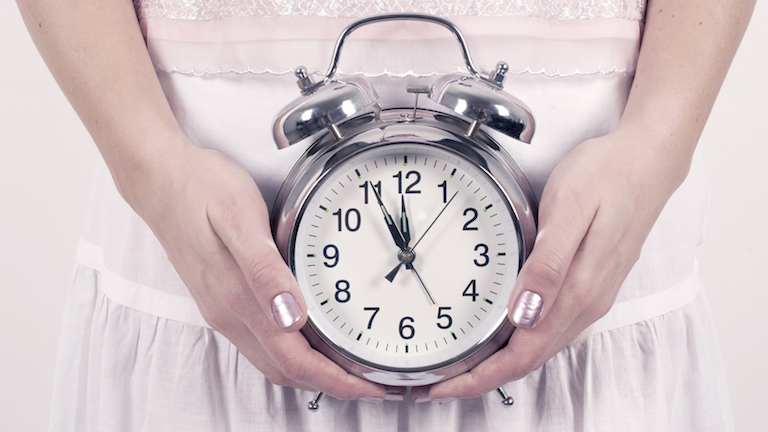Scientists know more than ever about the 24-hour biological clock that governs everything from eating to sleeping to most recently, taking medicines. Anna Magee has a guide
Rising, waking, sleeping, eating. They’re all governed by our body’s 24-hour biological clock, a system of chronobiology that scientists have been studying since the 1970s. Nearly 50 years later they can not only tell us when to eat and sleep but also when to make babies or take medicines.
Indeed, in May this year research from the University of Birmingham found that the flu vaccine was staggeringly, four times more effective if taken between the hours of 9am and 11am instead of 3pm and 5pm.
There’s been a huge explosion in our understanding of how our internal body clocks regulate every bodily process
‘In the last decade, there’s been a huge explosion in our understanding of how our internal body clocks regulate every bodily process,’ says David Ray, professor of medicine and endocrinology at the University of Manchester who has a special interest in chronobiology.
‘But most doctors are largely oblivious to the biological clock, so this study was important because it confirmed what the science has been showing – that the time at which you do things makes a big difference to health.’
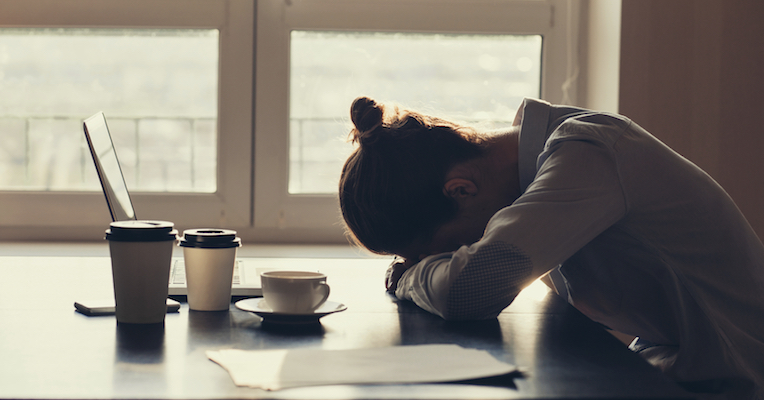
In trials at Warwick University, even cancer treatments are now being administered at different times of day when chemotherapy drugs have been shown to be more effective, he explains.
Biological clocks can vary because around ten per cent of us will be born larks, rising naturally before dawn (you can thank your parents for that) and another 15 per cent will be natural night owls, Russell Foster, professor of circadian neuroscience at the University of Oxford and author of Rhythms of Life: The Biological Clocks that Control the Daily Lives of every Living Thing (Profile £6.99) explains.
But for the majority of us there are peak times to do things for optimum health. Here’s a guide.
6am – 12pm:
DON’T have a heart attack or stroke
There’s a 49 per cent greater chance of having a stroke and a hugely increased chance of having a heart attack in the early stages of the day, says Prof. Foster.
When we’re asleep, blood pressure drops and blood viscosity or stickiness goes up. ‘Plaques start to build up in the blood vessels and a sudden rise of blood pressure after 6am prepares the body for activity making the time ripe for strokes and heart attacks.’ Prof. Foster suggests moving around gently in the morning and taking blood pressure medication before getting out of bed.
DO indulge your sweet tooth
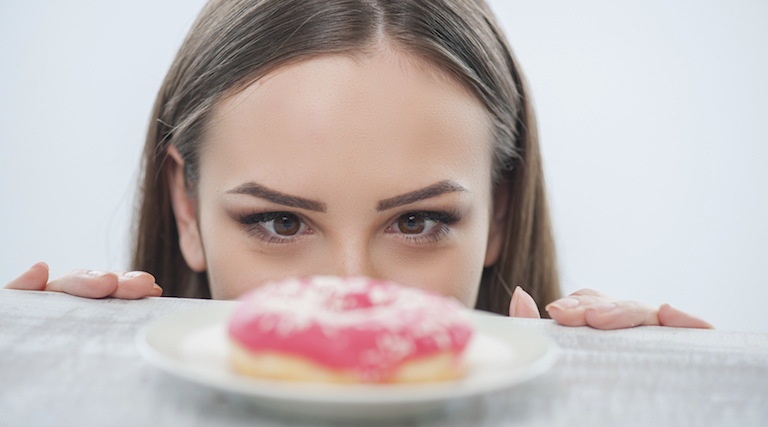
Your body is most efficient at metabolising sugar in the morning, a 2015 study from the University of Texas found.
‘We’re good at getting rid of glucose in the earlier part of the day but not good at it later,’ says Prof. Foster. ‘If you want your cake fix, have it early and a lighter, smaller sugar-depleted meal in the evening.’
The study also found shift workers were less able to metabolise sugar throughout the day.
‘Tired people tend to be more glucose intolerant overall and probably more susceptible to diabetes in the long-term,’ says Prof. Foster.
8am:
DO take a morning walk outside
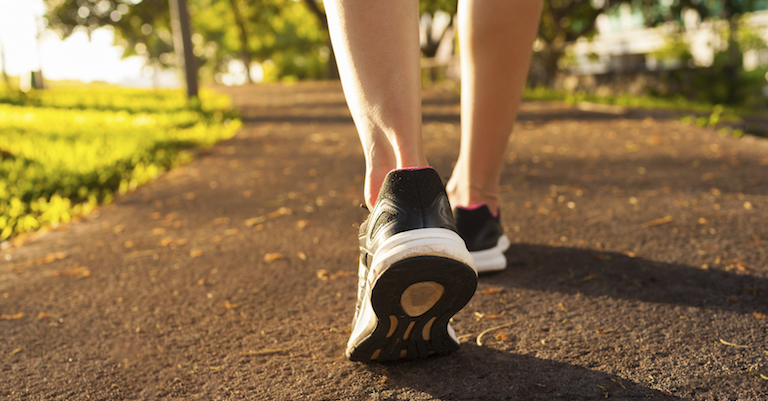
‘Morning light is the most effective at setting our body clocks,’ says Prof. Foster.
Our body clocks are set to the external world as a result of the light/dark cycle because cells on the eye called photosensitive retinal ganglion cells, which form part of the optic nerve, pick up light signals and convey that light/dark information to the body’s ‘master’ clock in the brain. This sends signals to every cell in the body’s organ systems all of which have their own internal 24 hour clocks, to help regulate our systems. Most of that process is determined by our exposure to natural light, Prof. Foster explains. ‘If you want to be more focused maximise your exposure to natural morning light as it’s also good for elevating alertness and lowering your predisposition towards depression.’
Light boxes by your desk may help but they only deliver around 1-2000 lux [light measurements] for half an hour whereas even on a grey day morning light delivers 5-10,000 lux.
‘If you can’t get outside, having your morning cup of tea next to a bright window will achieve a similar effect as a light box’, says Prof. Foster.
9am:
DO have sex

The male sex hormone testosterone peaks at this time, which may explain why males often want to have sex in the morning, explains Professor Foster. But not so fast boys ‘There is some data to suggest that females are less likely to have an orgasm in the morning.’
The male sex hormone testosterone peaks in the morning, which may explain why males often want to have sex at this time
10am-12pm:
Schedule a pitch or presentation
Your logical reasoning and mental performance peaks between 10am and 12pm thanks to a rise in levels of cortisol, a stimulating stress hormone. ‘Cortisol is a ‘go-signal’ hormone that normally rises just before waking and then declines during the afternoon and is virtually undetectable in the evening,’ says Prof. Ray.
MORE: 9 ways to work mindfulness in to your day
12-2pm:
Do your best thinking
Your brain’s problem-solving capacity is at its best in the two hours after midday, says Prof. Ray.
Your brain’s problem-solving capacity is at its best in the two hours after midday
‘This is the time when the balance of the brain’s vegetative function and its higher cognitive functions are at its greatest.’
This is a good time to take on cognitive activity that requires a mix of reflection and logic.
4-7pm:
Push yourself physically
‘If you want to run a race or increase your swim time, late afternoon is the time when you will get the best performance,’ says Prof. Foster.
5pm is when most of us reach our the highest cardiovascular strength and 5.30pm is when grip strength is at its best (which could mean the optimum time for a weights workout). One study on Olympic swimmers found they swam three seconds faster in the late afternoon compared to the morning.
7pm:
Have a light dinner (then don’t eat again until morning)
In recent years, it’s become clear that not only do our bodies have a master biological clock in the brain but that every cell and organ in the body also has its own internal 24-hour clock, explains Prof. Ray.
‘Likewise the liver’s clock oscillates in time with the main brain clock,’ he explains. It has an active phase during the day when it metabolises food and drink and then at night it slows down and mobilises energy.
Eating late when the liver is shutting down could therefore lead to the risk is that fat gets deposited in the wrong places
‘Eating late when the liver is shutting down could therefore lead to the risk is that fat gets deposited in the wrong places.’
Research at Brigham Young University in Utah has found that avoiding all food, but not water between 7pm and 6am could lead to almost a pound lost a fortnight and 238 fewer calories eaten each day (study subjects gained the weight – and then some – back when they returned to eating when they wanted).

10pm – 2am:
Make a baby
‘Ovulation is at its highest between midnight and 2am, explains Prof. Foster. ‘If you have sex between 10pm and midnight, the sperm will be in the reproductive tract ready to receive the egg after its ovulated,’ he explains.
MORE: 7 diet myths you probably believe
MORE: 5 stress symptoms and exactly how to fix them fast
10pm:
Take your asthma inhaler
Peak allergic reactions occur between 10pm and midnight, says Prof. Foster. If you know you’re an allergy sufferer, now is a good time to take preventative medication.
‘Last thing at night is also a good time to take gout or asthma medications because both these conditions peak between 2am and 4am.’ Gastric acid secretions are up last thing at night so if you get reflux, pre-bed is the best time to take your antacids.
4-6am:
DON’T drive
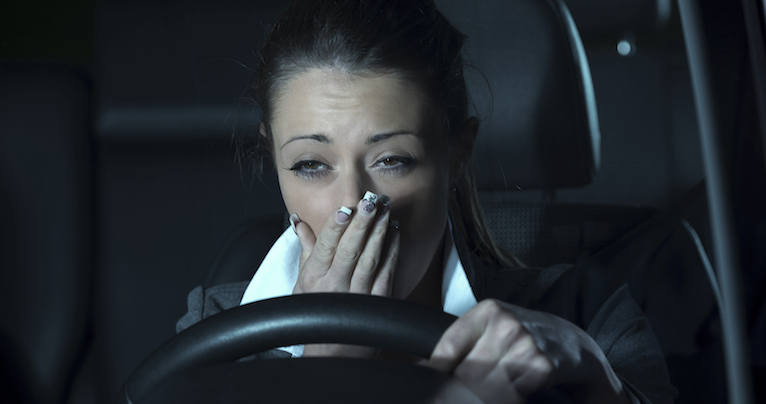
Your body is fast asleep at this time with body temperature at its very lowest as energy is diverted from the main organs to peripheral processes such as memory collaboration and skin repair. It’s also the time most road accidents occur
‘This is the worst time to drive because your brain is so closed down, its ability to process information is as impaired as if you are legally drunk.’
MORE: 8 ways high heels can be good for you
MORE: The truth about bad breath
Like this article? Sign up to our newsletter to get more articles like this delivered straight to your inbox.



